01:48
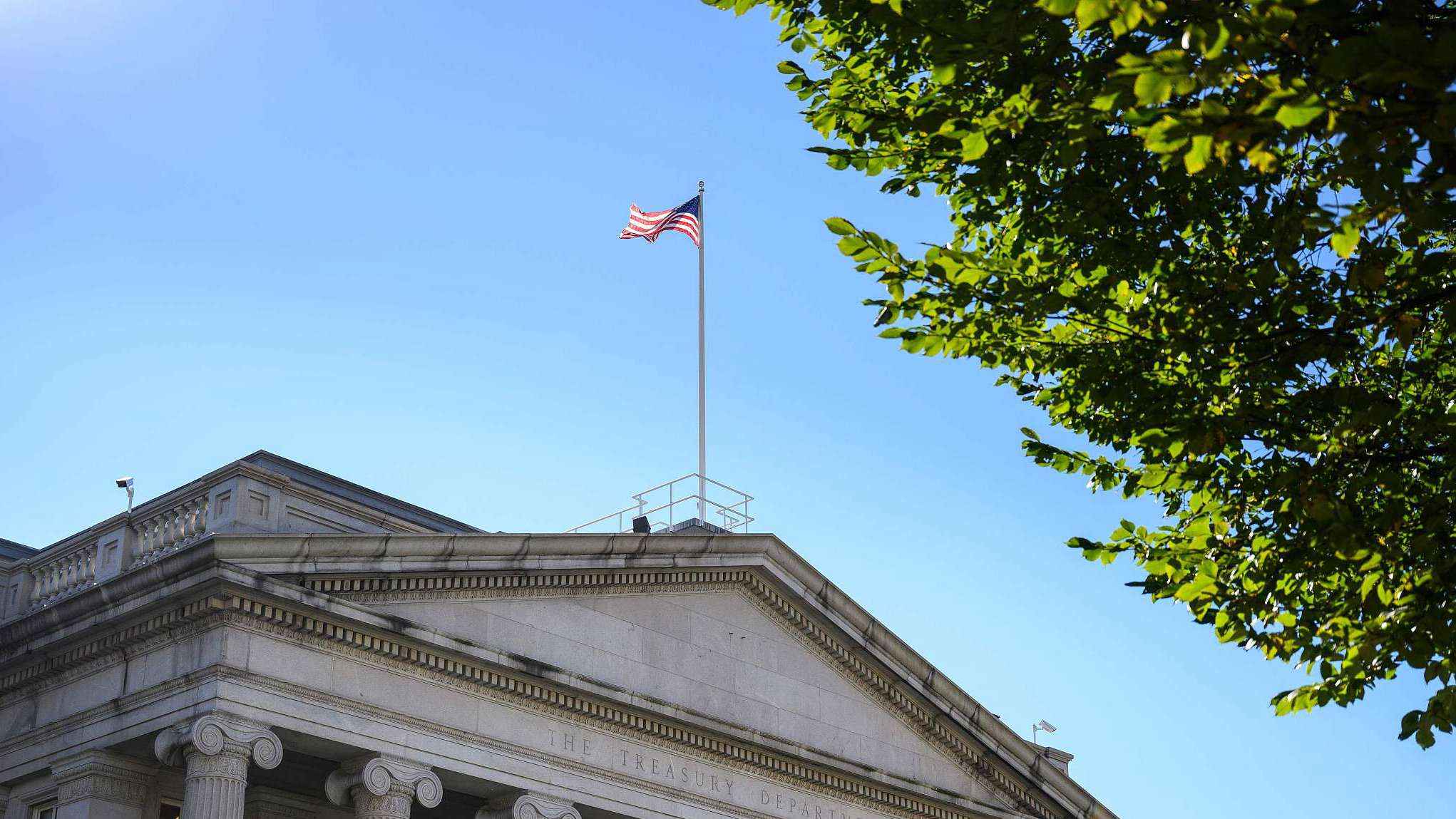
The US administration announced Friday it will snap back sanctions on Iran that had been lifted under the historic 2015 Iran nuclear deal, but eight nations would be given temporary waivers.
A statement issued by the White House said the sanctions, to fully take effect on November 5 (Monday), would be "the toughest" and "unprecedented," targeting many of the country's "critical sectors" including energy, shipping, shipbuilding, and finance.
'Maximum pressure' on Iran
The statement said the US will add 700 individuals and entities to its Iran blacklist and push the worldwide SWIFT banking network to cut Tehran off when it reimposes sanctions in a "maximum pressure" effort to cripple the country's economy.
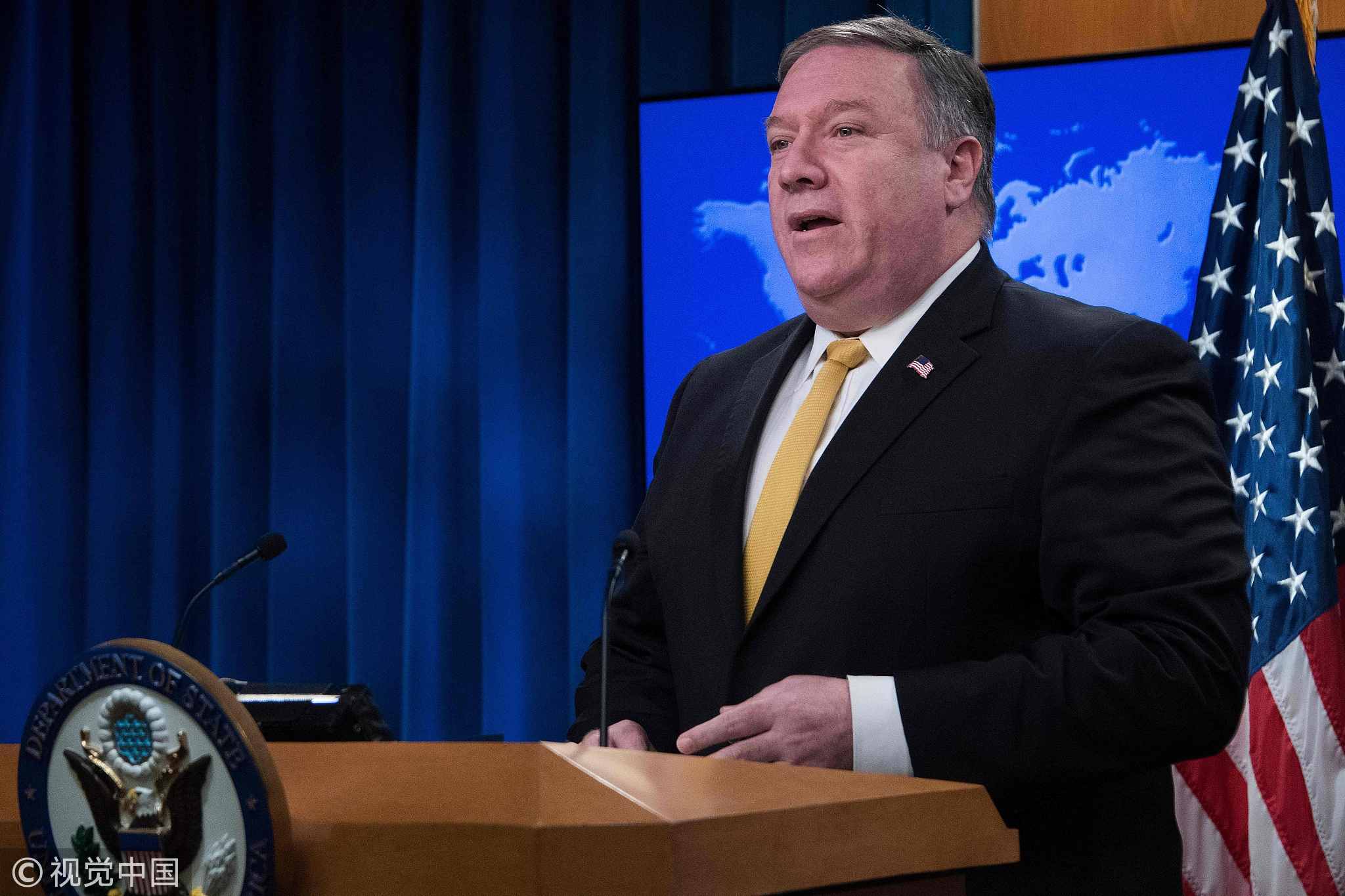
US Secretary of State Mike Pompeo speaks during a press briefing at the US Department of State in Washington, DC, October 3, 2018. /VCG Photo
US Secretary of State Mike Pompeo speaks during a press briefing at the US Department of State in Washington, DC, October 3, 2018. /VCG Photo
There will also be sanctions to cut off Tehran's ability to export oil, the country's most crucial foreign exchange earner.
The reimposition of sanctions "is aimed at depriving the regime of the revenues it uses to spread death and destruction around the world," US Secretary of State Mike Pompeo said.
"Our ultimate aim is to compel Iran to permanently abandon its well-documented outlaw activities and behave as a normal country," he added.
When Trump withdrew from the nuclear deal struck between world powers and Iran, he began reimposing sanctions that had been suspended or removed by his predecessor Barack Obama.
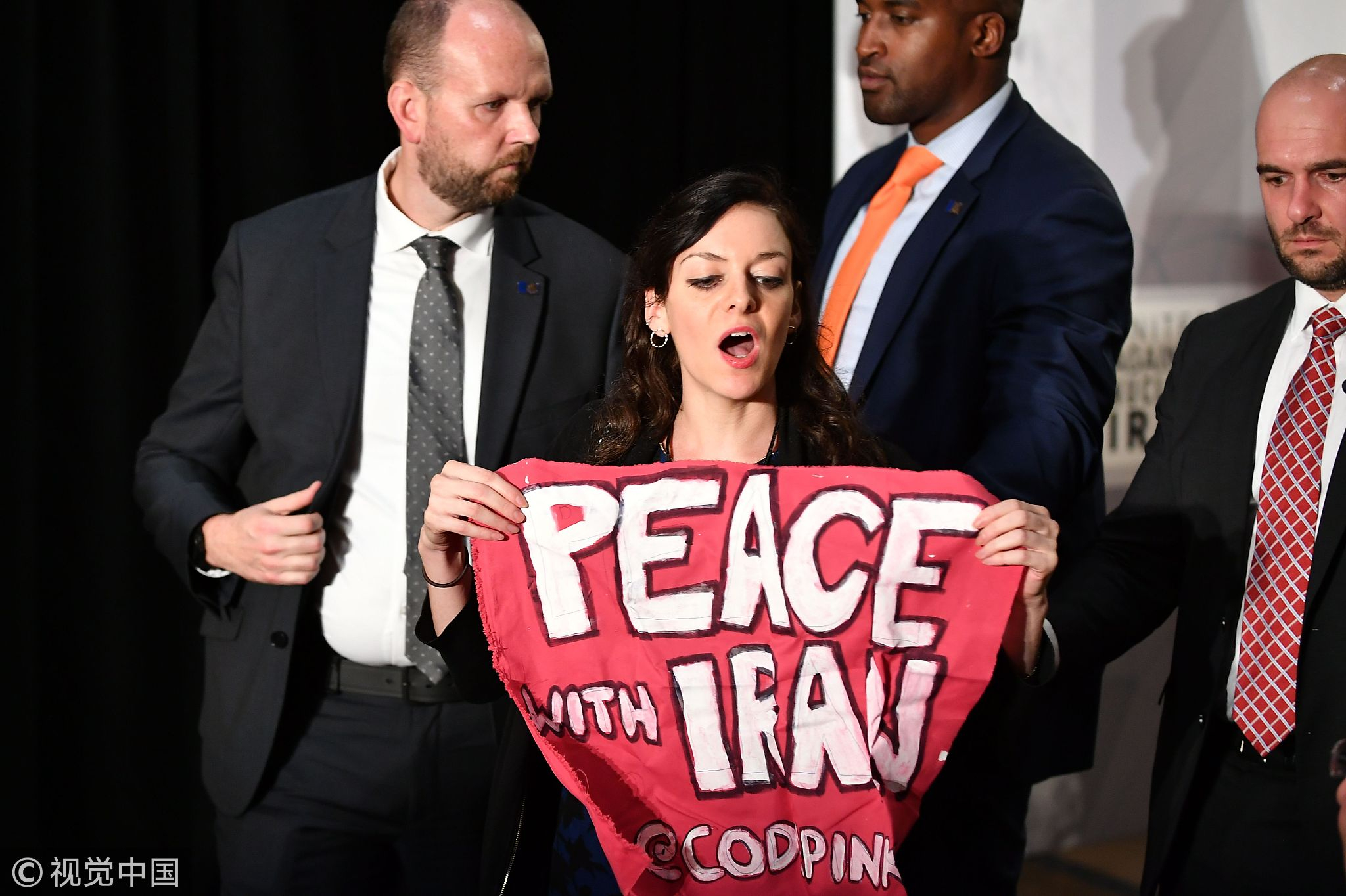
A protester is escorted out of as US Secretary of State Mike Pompeo prepares to speak at the United Against Nuclear Iran Summit in New York, September 25, 2018. /VCG Photo
A protester is escorted out of as US Secretary of State Mike Pompeo prepares to speak at the United Against Nuclear Iran Summit in New York, September 25, 2018. /VCG Photo
In response to the US' measures, Iran's Foreign Ministry Spokesman Bahram Qasemi told state IRIB TV that his country has "no concerns" over the fresh US sanctions on its crude sales and banking sector.
The Iranians will prove that they are not intimidated by the US sanctions which are in effect "psychological warfare," Qasemi said.
The US has not succeeded in persuading global financial institutions and companies to follow its sanctions against Iran, he added.
On Wednesday, Iranian President Hassan Rouhani shrugged off at the US sanction threats, expressing confidence that the Iranian government is not intimidated by the US threats.
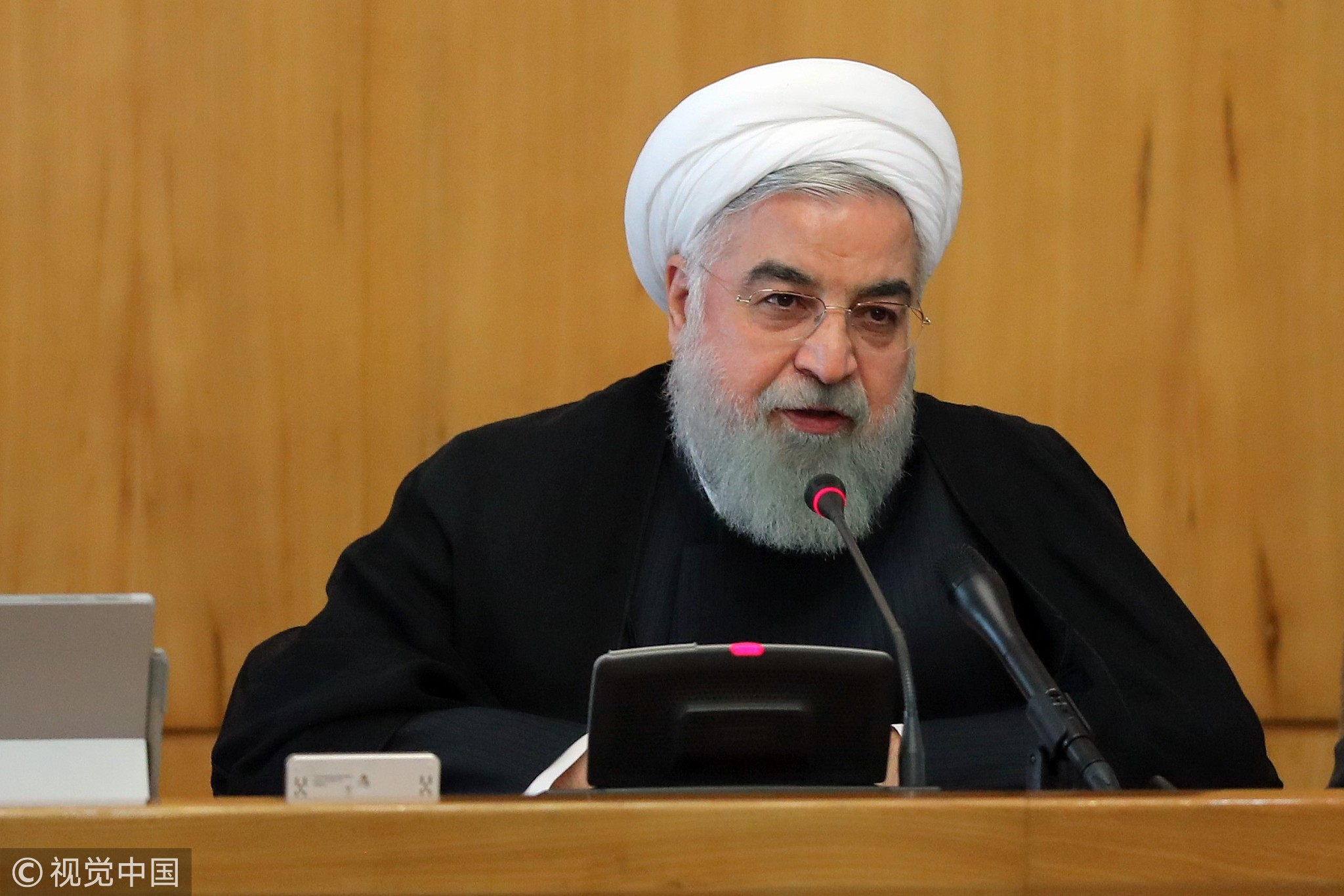
Iranian President Hassan Rouhani speaks on the US' sanctions towards Iranian oil during a cabinet meeting in Tehran, Iran, October 31, 2018. /VCG Photo
Iranian President Hassan Rouhani speaks on the US' sanctions towards Iranian oil during a cabinet meeting in Tehran, Iran, October 31, 2018. /VCG Photo
The Iranian president assured the Iranians that his administration is resolved in alleviating the people's economic hardship.
France, Germany, Britain and the European Union strongly condemned the US action Friday, as they did when Washington withdrew from the Iran nuclear deal in May.
They vowed to protect European companies doing "legitimate" business with Tehran. Nevertheless major corporations are expected to pull back from Iran, unwilling to risk the wrath of penalties in the world's largest economy.
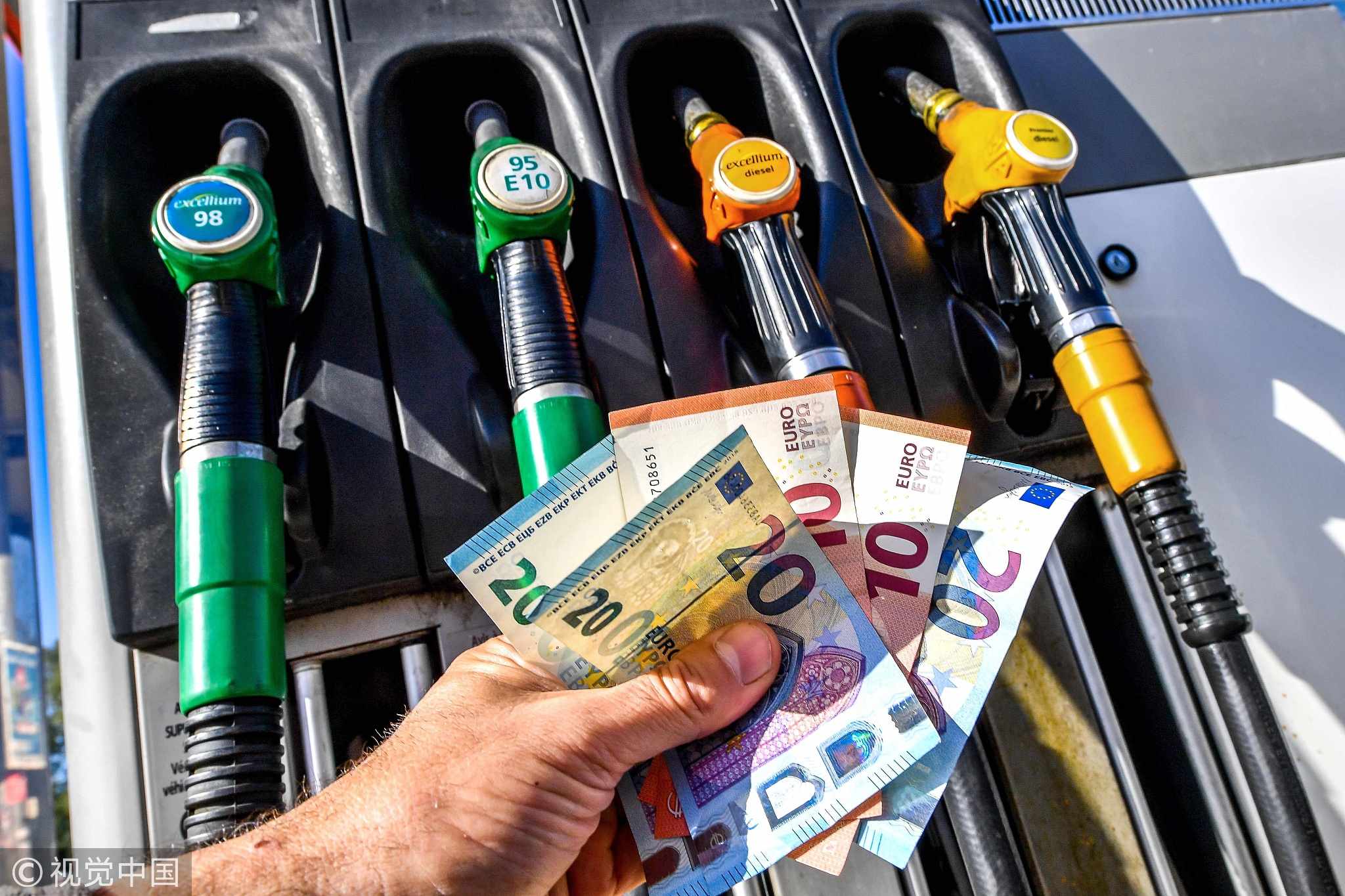
A man holds in his hand Euro banknotes at a petrol station in Lille, north of France, September 25, 2018 /VCG Photo
A man holds in his hand Euro banknotes at a petrol station in Lille, north of France, September 25, 2018 /VCG Photo
US, Turkey lift sanctions, ease tensions
Though Pompeo said eight importers would be given exemptions in exchange for slowing their purchases – a bid to avoid upsetting the global crude market.
India, Japan, South Korea and Turkey would be among the lucky ones.
These nations would be allowed to continue to purchase Iran's oil products temporarily, but they have to cut the imports till they are down to zero, as Pompeo explained that they had made efforts to cut their imports but could not complete the task by Monday's deadline.
Meanwhile, the US and Turkey on Friday also mutually lifted sanctions on top government officials, a sign of a thaw in relations that had been chilled by Ankara's detention of an American Christian pastor.
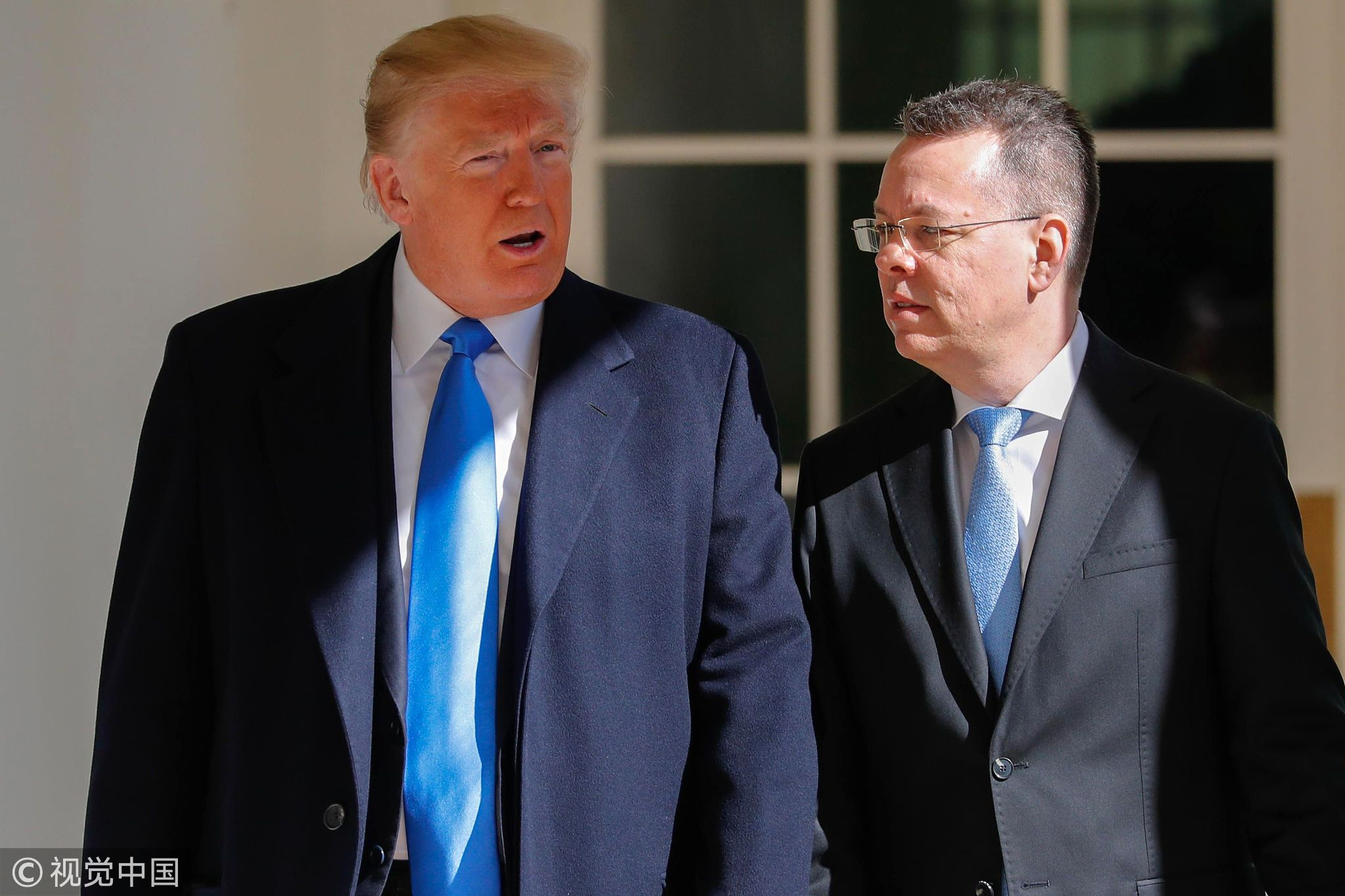
Freed US pastor Andrew Brunson (R) looks at US President Donald Trump before a meeting in the Oval Office at the White House in Washington, DC, October 13, 2018. /VCG Photo
Freed US pastor Andrew Brunson (R) looks at US President Donald Trump before a meeting in the Oval Office at the White House in Washington, DC, October 13, 2018. /VCG Photo
The US had imposed sanctions on Justice Minister Abdulhamit Gul and Interior Minister Suleyman Soylu in August to protest the case of Andrew Brunson, an American Christian pastor who had been detained by Turkey for two years.
The US Treasury Department announced on its website that the sanctions had been lifted. Turkey immediately matched the US move by lifting sanctions on two corresponding US officials – US Secretary of Homeland Security Kirstjen Nielsen and Attorney General Jeff Sessions, the foreign ministry said.
US President Donald Trump and Turkish President Recep Tayyip Erdogan agreed to mutually lift the sanctions during a phone call last week, said Omer Celik, spokesman for Turkey's ruling AK Party.
“It is an important step for normalization from this point forward,” Celik said. The White House did not have any immediate comment.







